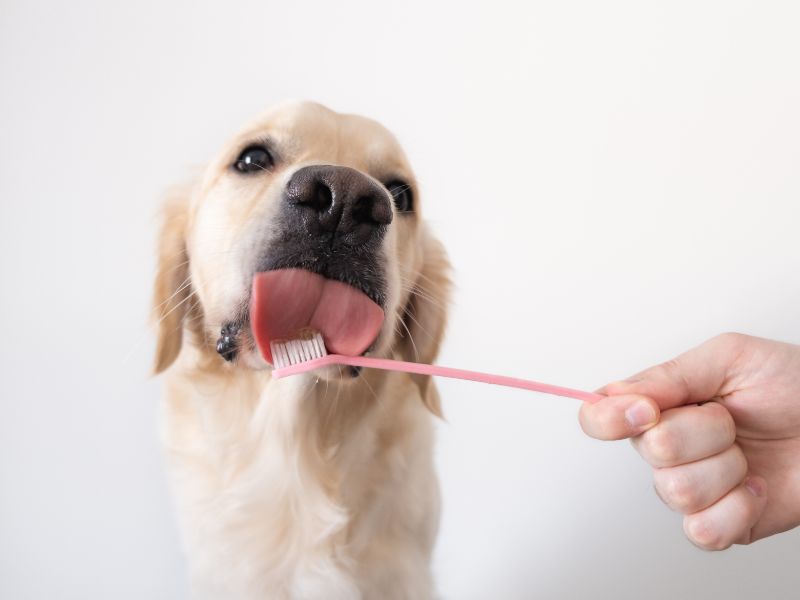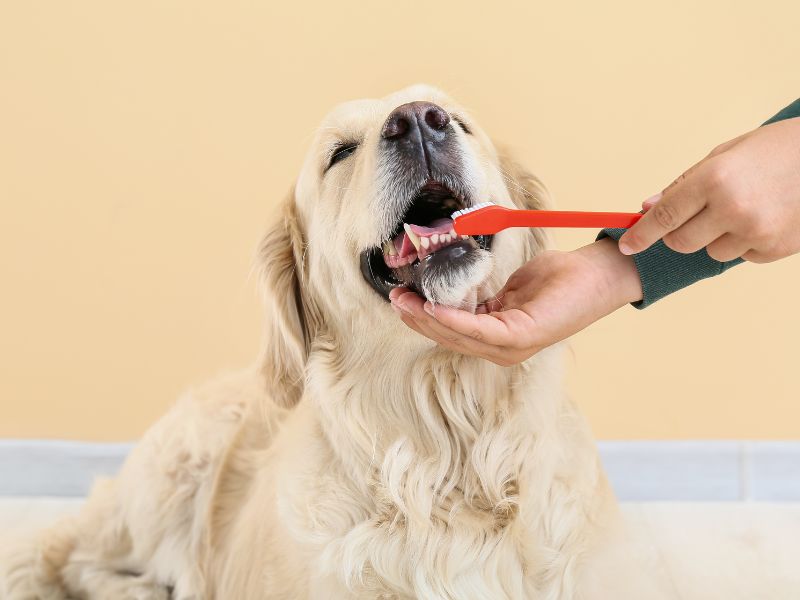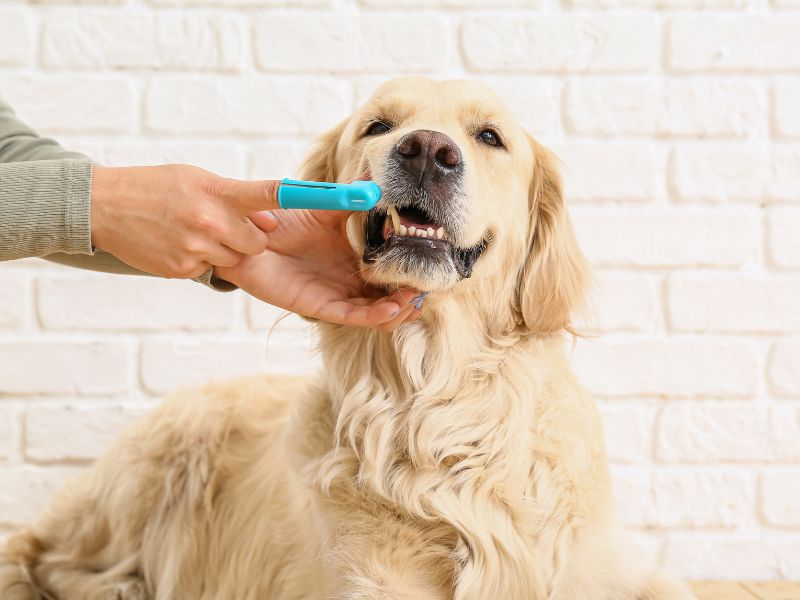Are you a dog owner who wants to ensure your furry friend has a healthy and happy smile? Look no further! In this article, we will share with you the top tips to maintain your dog’s dental health. Just like humans, dogs can suffer from dental problems such as plaque buildup, gum disease, and tooth decay. But with the right care and attention, you can help prevent these issues and keep your pup’s teeth in tip-top shape. From regular brushing and dental chews to a balanced diet and professional cleanings, we will cover all the essential aspects of maintaining your dog’s oral hygiene. So, join us as we delve into the world of doggy dental care and discover how you can ensure your beloved pet has a healthy and radiant smile for years to come. Your dog’s dental health matters, and we’re here to show you how to make it a top priority!
The Importance of Dental Health for Dogs
Dental health is crucial for dogs just as it is for humans. Many pet owners overlook the dental care aspect of their dog’s overall well-being, but it’s essential to understand that dental issues can lead to serious health problems if left untreated. Poor dental hygiene can result in gum disease, tooth loss, infections, and even organ damage. Additionally, dental problems can cause pain and discomfort, affecting your dog’s quality of life. Therefore, it is vital to prioritize your dog’s dental health to ensure they stay happy and healthy for years to come.
Regular dental care not only helps prevent dental issues but also saves you from expensive vet bills in the long run. By following a few simple steps and incorporating good oral hygiene practices into your dog’s routine, you can significantly improve their dental health and overall well-being.

Signs of Dental Problems in Dogs
As a responsible dog owner, it’s crucial to be aware of the signs that indicate your dog may be experiencing dental problems. Some common signs of dental issues in dogs include bad breath, excessive drooling, inflamed gums, tartar buildup, loose or missing teeth, reluctance to eat hard food, pawing at the mouth, and changes in behavior like irritability or aggression. If you notice any of these signs, it’s essential to consult your veterinarian for a thorough dental examination and appropriate treatment. Early detection and intervention can prevent further complications and ensure your dog’s dental health is properly addressed.
Dog-Friendly Dental Care Products
When it comes to maintaining your dog’s dental health, there are a variety of dog-friendly dental care products available on the market. These products are specially designed to promote oral hygiene and keep your dog’s teeth clean and healthy. One of the most effective dental care products for dogs is toothpaste formulated specifically for them. Human toothpaste contains ingredients that can be harmful if ingested by dogs, so it’s important to use a toothpaste made specifically for dogs.
Dog toothbrushes, too, are designed with their unique oral anatomy in mind. They are usually smaller, softer, and have a longer handle for better reach. It’s recommended to choose a toothbrush that suits your dog’s size and needs. Additionally, dental wipes and finger brushes can be used as alternatives for dogs who are not comfortable with a toothbrush.
Remember to introduce dental care products gradually to your dog, allowing them to get used to the taste and sensation. Start with gentle brushing and slowly increase the duration as your dog becomes more comfortable. Positive reinforcement and rewards can also help make the experience more enjoyable for your furry friend.
Brushing Your Dog’s Teeth
Regular brushing is the cornerstone of good dental care for dogs. Ideally, you should aim to brush your dog’s teeth at least two to three times a week. Brushing helps remove plaque and tartar buildup, prevents gum disease, and keeps your dog’s breath fresh. Here’s a step-by-step guide on how to brush your dog’s teeth:
- Choose a quiet and comfortable space for brushing. Make sure your dog is relaxed and in a calm state.
- Introduce the toothbrush and toothpaste to your dog gradually, allowing them to sniff and taste the toothpaste.
- Lift your dog’s lip gently to expose their teeth and gums.
- Hold the toothbrush at a 45-degree angle and brush in circular motions. Focus on the outer surfaces of the teeth, as that’s where plaque tends to accumulate.
- Pay special attention to the gum line, as it is prone to inflammation and infection. Brushing the gums helps stimulate blood flow and keeps them healthy.
- Be patient and gentle throughout the process. If your dog becomes anxious or uncomfortable, take a break and try again later. It’s important to create a positive association with toothbrushing.
Alternative Dental Care Options for Dogs
While brushing is the gold standard for dog dental care, it may not always be feasible for every dog. Some dogs simply do not tolerate the brushing process, making it a challenge for their owners. However, there are alternative dental care options available that can still help maintain your dog’s oral hygiene.
Dental rinses and sprays are one such option. These products contain enzymes and antimicrobial agents that help reduce plaque and freshen breath. Simply spray or rinse your dog’s mouth with the recommended amount of product, following the instructions provided by the manufacturer.
Another alternative is dental wipes or pads. These are pre-soaked with a solution that helps remove plaque and bacteria from your dog’s teeth and gums. Gently rub the wipes or pads against your dog’s teeth and gums to remove any debris and promote oral health.
Dental gels or mousses are also available for dogs who do not tolerate brushing. These products can be applied directly to your dog’s teeth and gums, and they work by forming a protective barrier against plaque and tartar buildup. They often contain ingredients that help fight bacteria and reduce inflammation.
Whichever alternative dental care option you choose, it’s important to consult with your veterinarian or a veterinary dental specialist to ensure you select the most suitable product for your dog’s specific needs.

Dental Treats and Chew Toys for Dogs
In addition to regular brushing and alternative dental care options, dental treats and chew toys can play a significant role in maintaining your dog’s dental health. These products can help remove plaque, massage the gums, and keep your dog entertained.
Dental treats are specially formulated to promote oral health. They are designed to be chewed for an extended period, allowing them to scrape away plaque and tartar. Look for dental treats that have received the Veterinary Oral Health Council (VOHC) seal of approval, as they meet specific criteria for effectiveness in reducing plaque and tartar buildup.
Chew toys are another excellent option for promoting dental health in dogs. Choose toys that are made of durable, non-toxic materials and have a textured surface. The texture helps clean your dog’s teeth and gums as they chew, effectively removing plaque and preventing tartar buildup. Be sure to select a size appropriate for your dog’s breed and chewing habits to avoid any potential choking hazards.
Remember to supervise your dog while they enjoy dental treats and chew toys to prevent any accidental swallowing or choking. Always discard any damaged or broken toys to avoid any potential harm to your dog.
Regular Veterinary Check-ups for Dental Health
While home dental care is crucial, it’s equally important to schedule regular veterinary check-ups for your dog’s dental health. Just like humans, dogs require professional dental cleanings to remove tartar buildup and address any underlying dental issues. Your veterinarian will conduct a thorough examination of your dog’s teeth and gums, checking for any signs of disease or decay.
During the dental cleaning procedure, your dog will be put under anesthesia to ensure their safety and comfort. The veterinarian will scale and polish their teeth, removing any plaque and tartar. They will also address any dental issues that require attention, such as extractions or periodontal treatment.
Regular dental check-ups help catch and treat dental problems early, preventing them from progressing into more severe conditions. Your veterinarian can provide guidance on how often your dog should have dental cleanings based on their specific needs.

See Also: All You Need to Know About the Airedale Terrier
And: Tips To Help You Clean Up After Your Messy Pets
Common Dental Issues in Dogs and How to Prevent Them
Dogs can experience a range of dental issues, just like humans. Some common dental problems in dogs include plaque and tartar buildup, gum disease, tooth decay, and oral infections. To prevent these issues from occurring, it’s important to implement good dental care practices and take preventative measures.
Regular brushing, as mentioned earlier, is key to preventing plaque and tartar buildup. Additionally, feeding your dog a balanced diet can contribute to their dental health. Avoid feeding them excessive sugary treats or table scraps, as these can contribute to tooth decay and gum disease. Instead, opt for dental treats that promote oral health.
Proper hydration is also essential for maintaining your dog’s dental health. Ensure they have access to fresh water at all times, as it helps rinse away food particles and bacteria from their teeth and gums.
Regular veterinary check-ups and professional dental cleanings are vital to catch and treat any dental issues promptly. Your veterinarian can also provide recommendations on dental care products and techniques that are best suited for your dog’s specific needs.
The Link Between Dental Health and Overall Well-being in Dogs
Maintaining your dog’s dental health goes beyond just having a healthy smile. It is closely linked to their overall well-being. Poor dental hygiene can lead to a range of health issues, including infections, heart disease, kidney disease, and systemic inflammation. The bacteria present in the mouth can enter the bloodstream and affect various organs, causing serious health complications.
By prioritizing your dog’s dental health, you are promoting their overall health and longevity. A healthy mouth contributes to a healthy body, ensuring your dog enjoys a happy and active life.
Conclusion: Taking Care of Your Dog’s Dental Health
Your dog’s dental health is a vital aspect of their overall well-being. By following the top tips shared in this article, you can ensure your furry friend maintains a healthy and radiant smile for years to come.
Remember to prioritize regular brushing, using dog-friendly dental care products, and exploring alternative dental care options if necessary. Incorporate dental treats and chew toys into your dog’s routine, and schedule regular veterinary check-ups for professional dental cleanings. Be aware of the common dental issues in dogs and take preventative measures to keep your pup’s teeth and gums healthy.
Taking care of your dog’s dental health not only prevents dental problems but also contributes to their overall health and happiness. Your furry friend will thank you with a wagging tail and a bright, shiny smile! So, make your dog’s dental health a top priority and enjoy the benefits of a happy and healthy companion.

